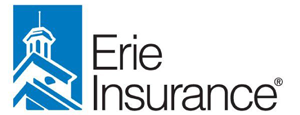4 Questions to Ask a Business Insurance Agent
Explore the crucial questions you should ask a business insurance agent before finalizing your policy. We're here to guide you through ensuring your business is adequately protected, while also being cost-effective. Learning about the essentials of business insurance empowers you to make informed decisions that safeguard your enterprise against unforeseen risks. With numerous options available, having a strategic approach is essential to get the best coverage that aligns with your business needs and budget. Keep reading to uncover the vital questions to ask a business insurance agent and insights to help in your decision-making process.
1. What Are Your Coverage Options?
Business insurance is not a one-size-fits-all solution; there are numerous types, each catering to unique risks and needs. For instance, general liability insurance covers common business liabilities, while professional liability insurance targets professionals providing services. Business Property Insurance helps protect the physical assets of your business. Moreover, Workers’ Compensation Insurance is mandatory in most states for employee injuries. It is essential to discuss these options with your agent to tailor a policy that perfectly suits your business requirements.
Understanding the specific needs of your business is pivotal in selecting insurance. Every industry presents different risks, and recognizing these helps in obtaining the right coverage. A bakery may prioritize product liability, while a consulting firm concerns itself with professional liability. Engaging in a detailed conversation with your insurance agent can reveal potential vulnerabilities. This is particularly crucial as, according to Forbes, over 95% of small business owners don’t know the basics about small business insurance.
The importance of coverage limits cannot be overstated when purchasing insurance from a business insurance agent. These limits define the maximum amount your policy will pay in the event of a claim. An accurate evaluation of your business size, assets, and risk profile is essential in determining appropriate limits. Avoid underinsuring, which could lead to financial strain, or over-insuring, which might unnecessarily inflate premiums. Discussing coverage limits with your business insurance agent ensures protection without extraneous financial commitments.
Every industry is accompanied by its own set of risks, necessitating bespoke insurance coverage. Restaurants, for example, may require food contamination coverage, whereas tech companies might prioritize cyber liability insurance. Recognizing such industry-specific needs helps avoid unforeseen losses or liabilities. Engaging with a knowledgeable agent who understands the intricacies of your industry is indispensable. This targeted approach ensures comprehensive protection for potential industry-related issues.
Exclusions are elements that are explicitly not covered under an insurance policy. Understanding them is critical to avoiding unexpected expenses. Factors such as normal wear and tear, intentional damage, or specific types of damage might not be covered. By asking your business insurance agent about exclusions upfront, you can mitigate potential risks or arrange supplementary coverage. Clarity on exclusions leads to informed decision-making, shielding your business from unwarranted financial liability.
What Is Your Claims and Customer Service Experience?
Knowing the claims process and expected timeframes is crucial for mitigating operational disruptions. Discuss the steps involved in filing a claim with your agent to have a seamless understanding. Learn about typical processing times and factors that may influence delays in claims payout. It’s beneficial to know whom to contact and what kind of support you can expect during the process. A clear understanding promotes confidence and readiness in the event of a claim.
Customer service availability can greatly impact your experience with an insurer, especially during urgent situations. It's necessary to know their service hours, how easily they can be reached, and what support is available after hours. Having a reliable customer service structure ensures help is accessible whenever needed. Ask your business insurance agent to share insights on customer service's efficiency and accessibility. A dependable service system ensures peace of mind in times of need.
Knowing the process for handling disputes and appeals adds another layer of assurance. Understand the protocols for addressing grievances arising from misaligned settlements or claims disputes. Discuss with your agent about the escalation paths and the efficiency of the resolution processes. Having clarity in this aspect guarantees that your concerns can be rectified timely and in an effective manner. This insight strengthens your confidence in managing any future disagreements with the insurance provider.
Feedback from current policyholders provides invaluable real-world insights into an insurer’s service quality. Connecting with fellow business owners or online forums can be beneficial for gauging customer satisfaction with claims processing and dispute resolution. Consider feedback regarding service responsiveness, reliability during claims, and the company’s overall reputation. This peer-based perspective enhances your understanding of the insurer’s practical performance. Inquire about such feedback during discussions with your agent for a broader comprehension of the insurance experience.
Different support channels, such as phone, email, and live chat, offer varied convenience levels. Evaluate the efficiency and responsiveness of each channel through which you may need to contact your insurer. Verify their operation hours, response times, and level of support offered. Discussing these aspects with your agent ensures that you have tailored access to assistance. The effectiveness of support channels significantly influences your overall satisfaction with your insurance experience.
What Legal and Compliance Considerations Should I Keep in Mind?
Legal considerations are integral when it comes to working with a business insurance agent. Each country, and sometimes even states, has distinct legal stipulations about necessary insurance covers. It is vital to consult your agent about mandatory insurance types to maintain legal compliance. Being clueless about these legal requirements may lead to liabilities or penalties. Thorough discussions with your agent ensure that your business sticks to essential legal guidelines efficiently.
Adhering to regulatory standards is pivotal in the insurance landscape. Regulations such as data protection, employment laws, and industry-specific protocols must be taken into account. Your agent can assist in comprehending and executing these legal directives within your policy framework. Proper regulatory understanding prevents legal entanglements. Ensuring your insurance policy aligns with regulations enhances both legal compliance and operational integrity.
Insurance laws and regulations can change, affecting your policy and compliance status. Stagnant insurance measures can lead to unintentional non-compliance as laws evolve. Regular consultations with your agent are vital to stay updated with legislative changes that might affect your insurance coverage. Proactive management keeps your business aligned with necessary adjustments, safeguarding against legal infractions. This strategy fortifies your business’s adherence to dynamically changing regulatory landscapes.
For businesses operating internationally, understanding cross-border insurance requirements is crucial. Different jurisdictions have varied legal prerequisites for business insurance. Confirm with your agent about the necessary international coverages to avoid violations and secure operational safety. Such awareness is vital in managing risks associated with global operations. Your agent’s expertise in international regulations provides comprehensive guidance for cohesive global business protection.
Legal experts provide guidance beyond what an insurance agent may offer, especially in complex situations. They can offer in-depth scrutiny of policy terms to ensure complete legal compliance. Collaborating with legal advisors supports tailored insurance strategies that are legally sound and serve your business’s unique needs. Combining the expertise of a legal advisor with your agent’s insights creates a cohesive protection strategy. This dual approach secures legal and business interests effectively.
By asking these detailed questions, you ensure that your business is safeguarded against potential risks. This comprehensive approach not only helps in selecting the right policy but also in forming a reliable partnership with your insurance provider. With informed insights into coverage essentials, provider reliability, cost analysis, claims, legalities, and agent relationships, you cultivate strategic business safeguards. Traversing the complexities of working with a business insurance agent with precision ensures your enterprise thrives securely amidst unpredictable challenges. Ultimately, strategic engagement with these elements empowers enduring business continuity and success, so call John W. Neighbarger Insurance Agency today to get started.




Share On: